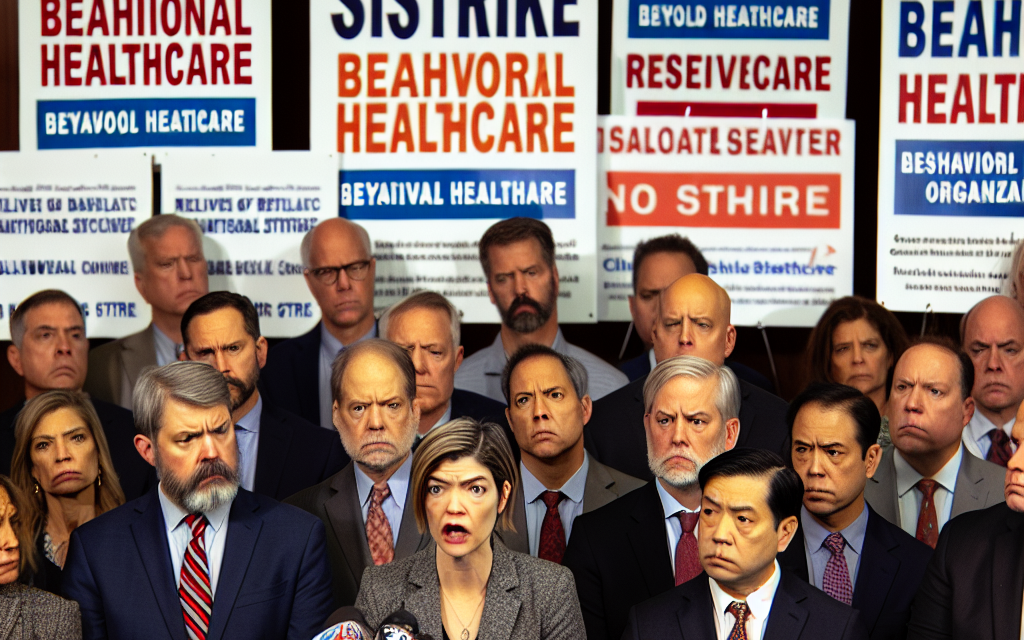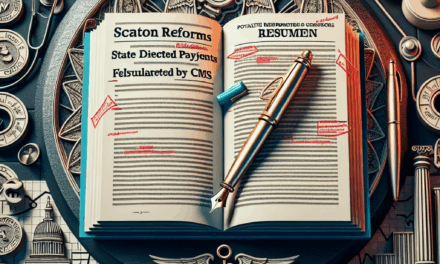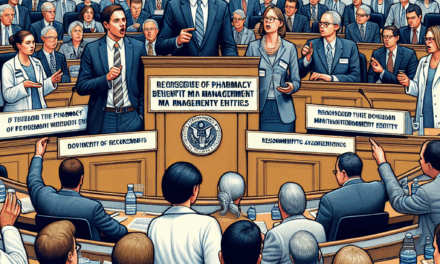State Officials Urge Kaiser to Resolve Behavioral Healthcare Strike
The ongoing strike by behavioral healthcare workers at Kaiser Permanente has drawn significant attention from state officials, healthcare advocates, and the public. As the demand for mental health services continues to rise, the implications of this strike extend far beyond the picket lines. This article delves into the complexities surrounding the strike, the impact on patients, the responses from state officials, and the broader implications for the healthcare system. We will explore five key subtopics that illuminate the various facets of this critical issue.
The Background of the Strike
The strike initiated by Kaiser Permanente’s behavioral healthcare workers is rooted in longstanding grievances regarding working conditions, staffing shortages, and compensation. These issues have been exacerbated by the COVID-19 pandemic, which has significantly increased the demand for mental health services.
According to the National Alliance on Mental Illness (NAMI), approximately 1 in 5 adults in the U.S. experience mental illness each year. This statistic underscores the urgent need for accessible and effective mental health care. However, many healthcare workers have reported feeling overwhelmed and under-resourced, leading to burnout and high turnover rates.
- Staffing Shortages: Many behavioral health facilities, including those operated by Kaiser, have struggled to maintain adequate staffing levels. This has resulted in longer wait times for patients and increased workloads for existing staff.
- Compensation Issues: Workers have expressed concerns about their pay relative to the demands of their jobs. Many feel that their compensation does not reflect the level of expertise and emotional labor required in behavioral healthcare.
- Workplace Conditions: Reports of inadequate support, high caseloads, and insufficient resources have contributed to a toxic work environment, prompting many workers to seek better conditions through the strike.
The strike, which began in early 2023, has seen thousands of workers walk off the job, demanding better pay, improved working conditions, and increased staffing levels. The situation has prompted state officials to intervene, recognizing the potential consequences for the mental health system and the patients who rely on it.
The Impact on Patients and Communities
The strike has significant implications for patients seeking mental health services. With many behavioral healthcare workers on strike, access to care has been severely limited. Patients who rely on Kaiser for their mental health needs are facing delays in appointments, cancellations of therapy sessions, and disruptions in medication management.
For many individuals, timely access to mental health care is crucial. Delays can exacerbate existing conditions, leading to increased hospitalizations and emergency room visits. A study published in the Journal of the American Medical Association (JAMA) found that individuals with untreated mental health conditions are at a higher risk for physical health problems, substance abuse, and even suicide.
- Increased Wait Times: Patients are experiencing longer wait times for appointments, with some reporting delays of several weeks or even months.
- Disruption of Care: Ongoing therapy sessions are being canceled, leaving patients without the support they need to manage their conditions effectively.
- Emergency Services Strain: As patients seek alternative care options, emergency rooms are becoming overwhelmed with individuals in crisis, further straining an already burdened healthcare system.
Communities are also feeling the impact of the strike. Local organizations that provide support services for individuals with mental health challenges are reporting increased demand for their resources. Many community-based programs are not equipped to handle the influx of individuals seeking help, leading to a gap in care that can have devastating consequences.
State Officials’ Response and Involvement
In response to the strike, state officials have taken a proactive stance, urging Kaiser Permanente to resolve the issues at hand. Recognizing the critical role that behavioral healthcare workers play in the mental health system, officials have called for negotiations to address the workers’ demands.
California Governor Gavin Newsom has publicly expressed his concern over the strike, emphasizing the need for a swift resolution to ensure that patients continue to receive the care they need. In a recent statement, he said, “We cannot afford to let this strike continue. The mental health crisis in our state is too urgent, and we need to support our healthcare workers while ensuring that patients are not left without care.”
- Negotiation Efforts: State officials have facilitated discussions between Kaiser management and union representatives to address the workers’ concerns and find common ground.
- Public Awareness Campaigns: Officials have launched campaigns to raise awareness about the importance of mental health services and the challenges faced by healthcare workers.
- Legislative Action: Some lawmakers are considering legislation aimed at improving working conditions and compensation for behavioral healthcare workers across the state.
The involvement of state officials highlights the importance of addressing the systemic issues within the mental health system. By advocating for both workers and patients, officials are taking a holistic approach to resolving the crisis.
The Broader Implications for the Healthcare System
The strike at Kaiser Permanente is not an isolated incident; it reflects broader trends within the healthcare system regarding the treatment of behavioral healthcare workers and the accessibility of mental health services. As the demand for mental health care continues to rise, the industry must confront the challenges of staffing, compensation, and workplace conditions.
One of the most pressing issues is the stigma surrounding mental health care, which can deter individuals from seeking help. According to the Substance Abuse and Mental Health Services Administration (SAMHSA), stigma remains a significant barrier to accessing mental health services, leading to underutilization of available resources.
- Workforce Shortages: The healthcare industry is facing a shortage of qualified mental health professionals, which is exacerbated by high turnover rates and burnout among existing staff.
- Funding Challenges: Many mental health programs are underfunded, leading to inadequate resources for both workers and patients.
- Policy Changes: There is a growing call for policy changes that prioritize mental health funding and support for healthcare workers.
Addressing these systemic issues is crucial for creating a sustainable mental health care system that can meet the needs of patients and support the workforce. The Kaiser strike serves as a wake-up call for policymakers, healthcare organizations, and the public to recognize the importance of investing in mental health care.
Potential Solutions and Future Directions
As the strike continues, it is essential to explore potential solutions that can address the underlying issues faced by behavioral healthcare workers and improve access to care for patients. Several strategies can be implemented to create a more supportive environment for both workers and patients.
- Improved Compensation: Increasing salaries and benefits for behavioral healthcare workers can help attract and retain qualified professionals in the field.
- Enhanced Training Programs: Providing ongoing training and support for mental health professionals can help reduce burnout and improve job satisfaction.
- Increased Funding for Mental Health Services: Advocating for increased funding at both the state and federal levels can help expand access to mental health care and support community-based programs.
Additionally, fostering a culture of collaboration between healthcare organizations, state officials, and community organizations can lead to innovative solutions that address the needs of both workers and patients. By prioritizing mental health care and supporting the workforce, we can create a more resilient healthcare system that is equipped to handle the challenges of the future.
Conclusion
The strike by Kaiser Permanente’s behavioral healthcare workers has brought to light critical issues within the mental health system, including staffing shortages, compensation challenges, and the urgent need for improved working conditions. As state officials urge Kaiser to resolve the strike, it is essential to recognize the broader implications for patients and communities.
By addressing the systemic issues that contribute to the crisis in mental health care, we can create a more sustainable and effective system that meets the needs of all stakeholders. The ongoing discussions and negotiations surrounding the strike present an opportunity for meaningful change in the mental health landscape.
Ultimately, the resolution of this strike will not only impact the workers involved but will also shape the future of mental health care in our communities. It is imperative that we prioritize the well-being of both healthcare workers and patients to ensure a healthier future for all.





